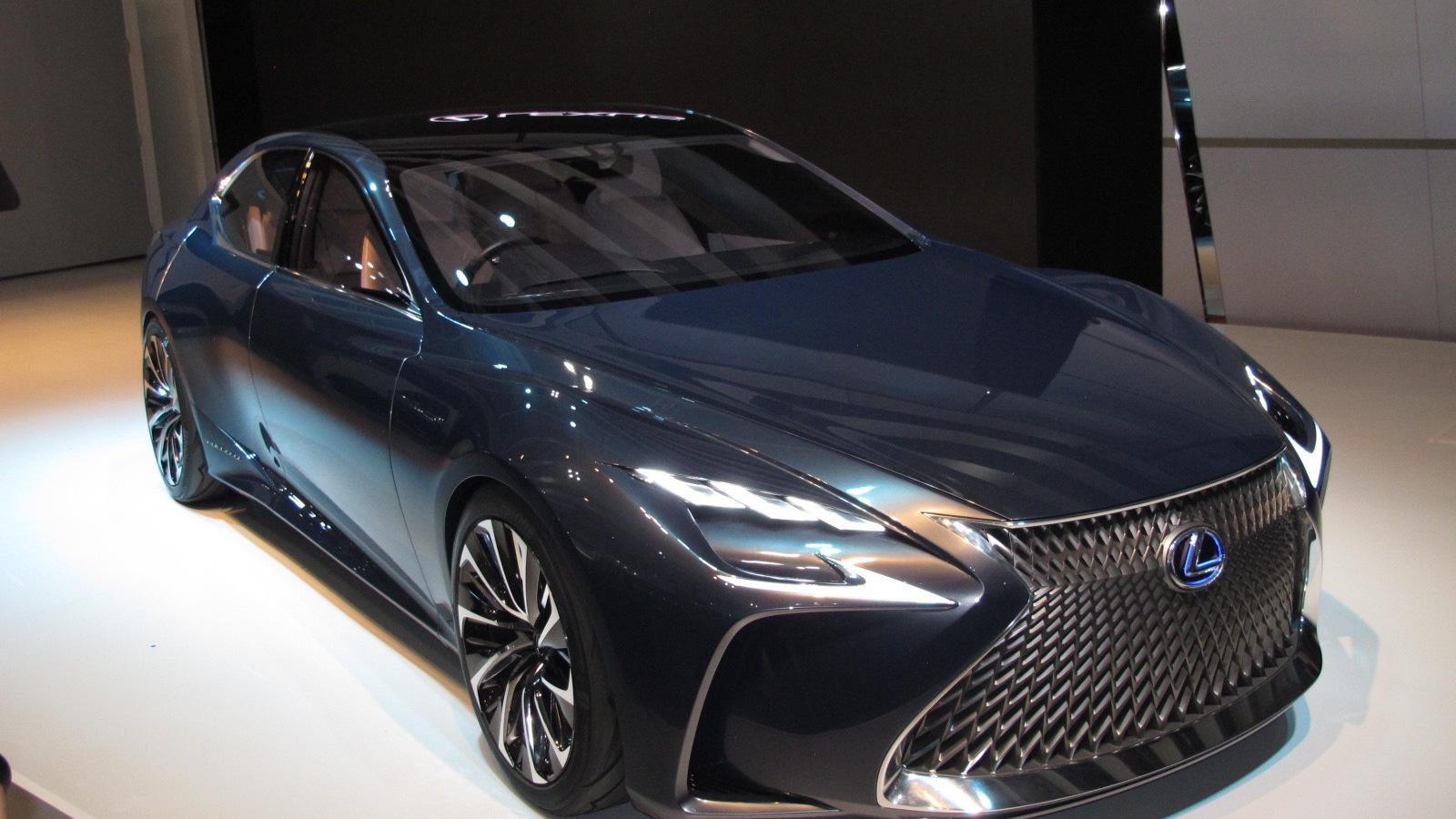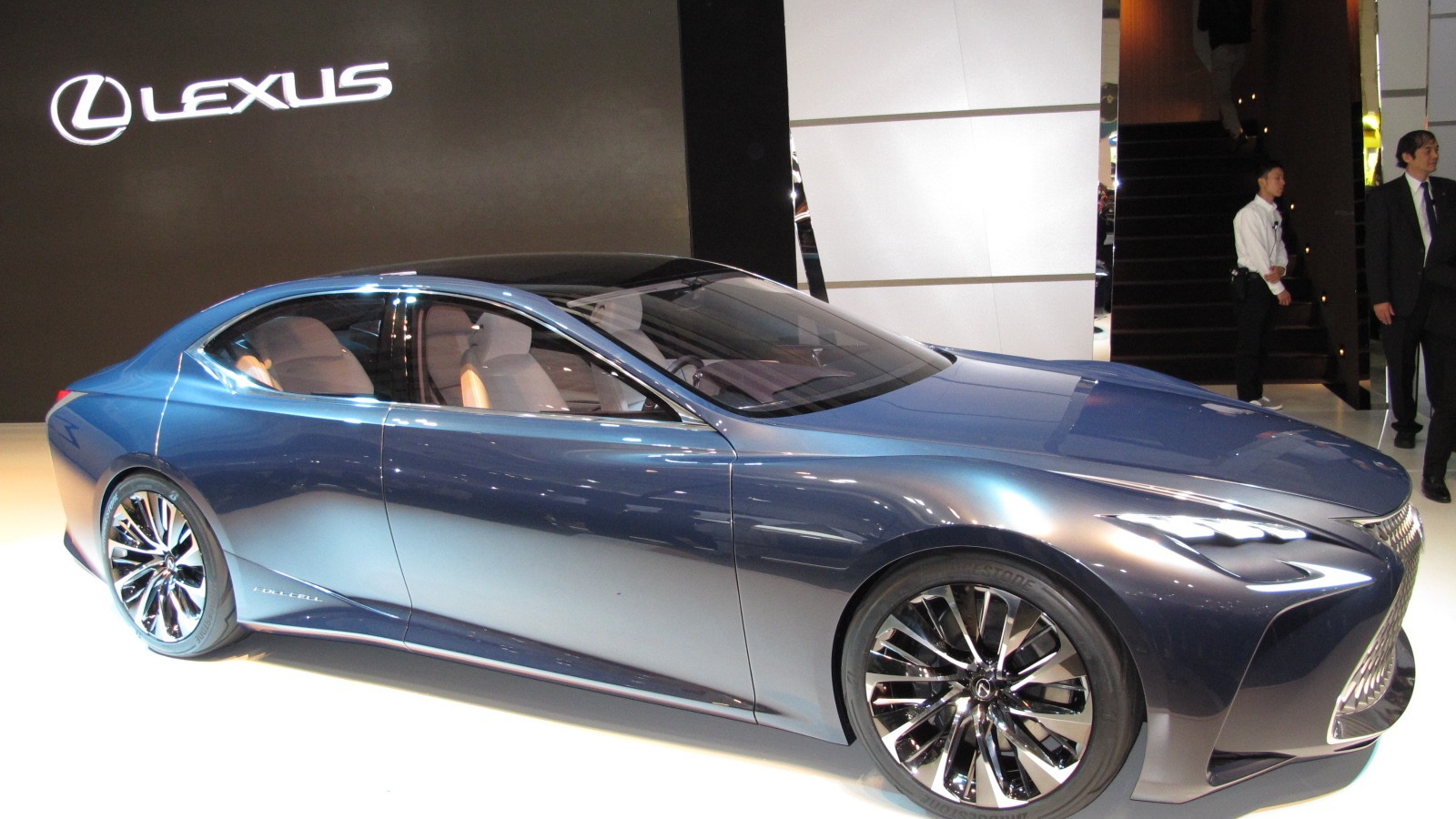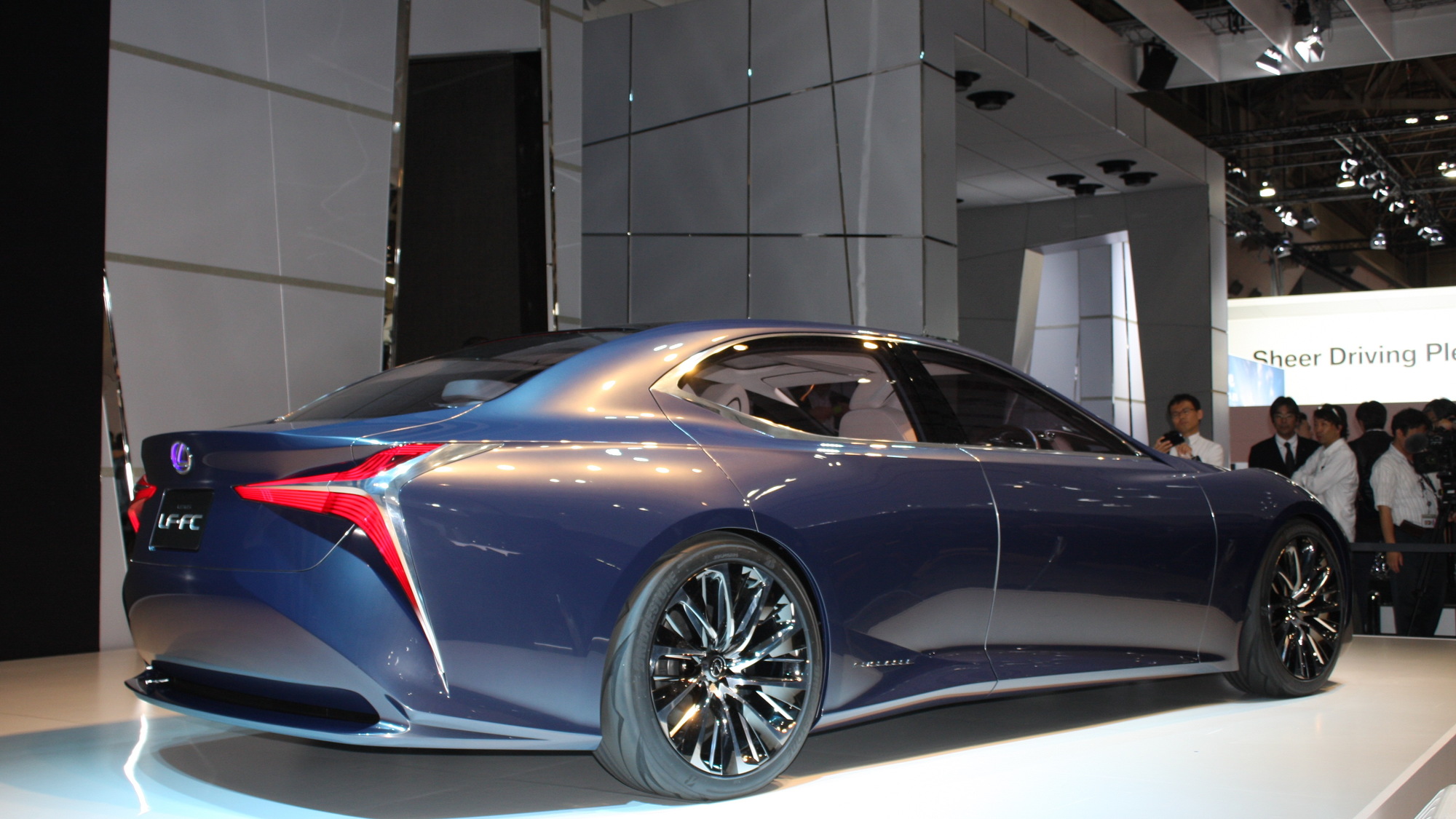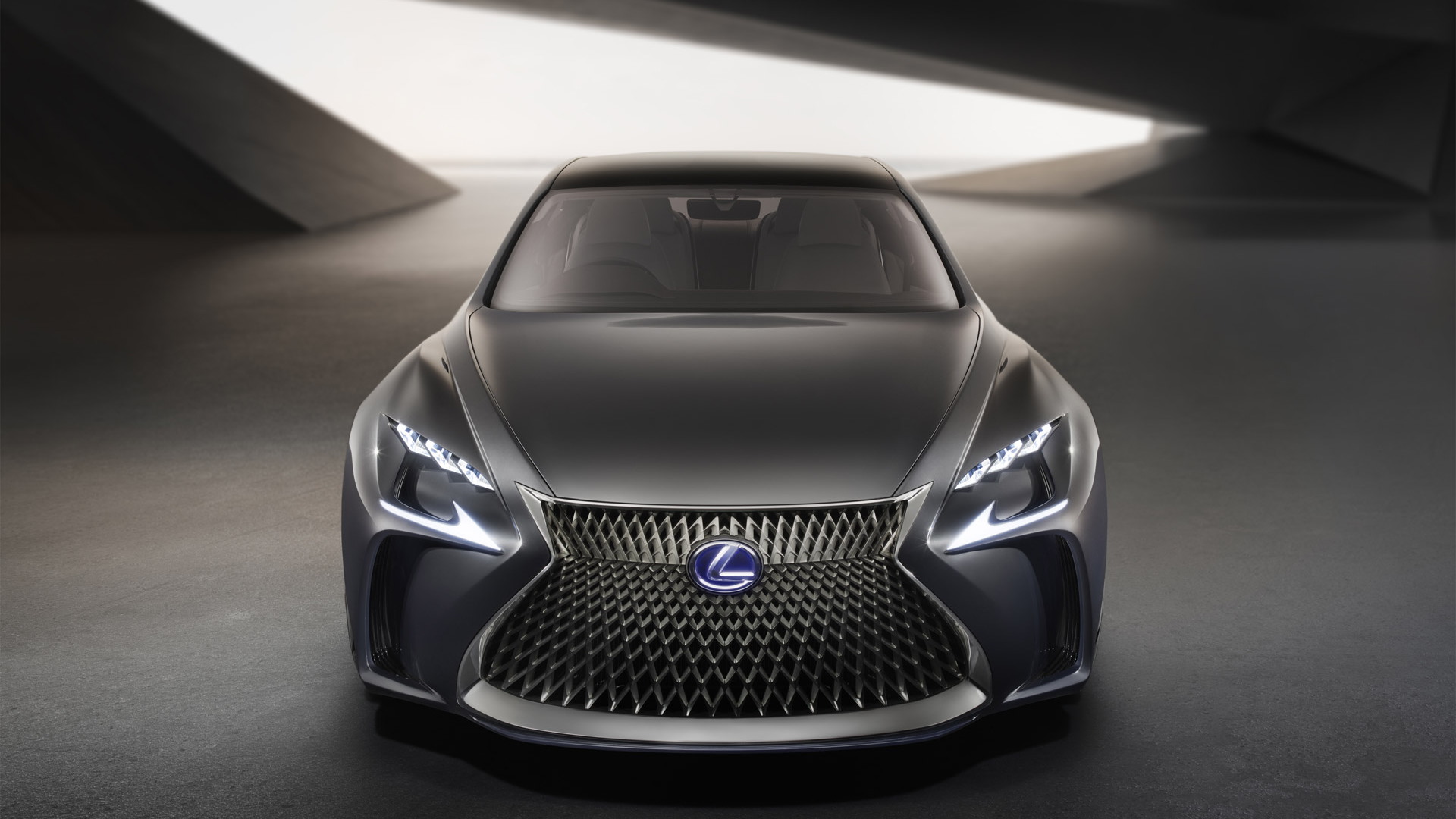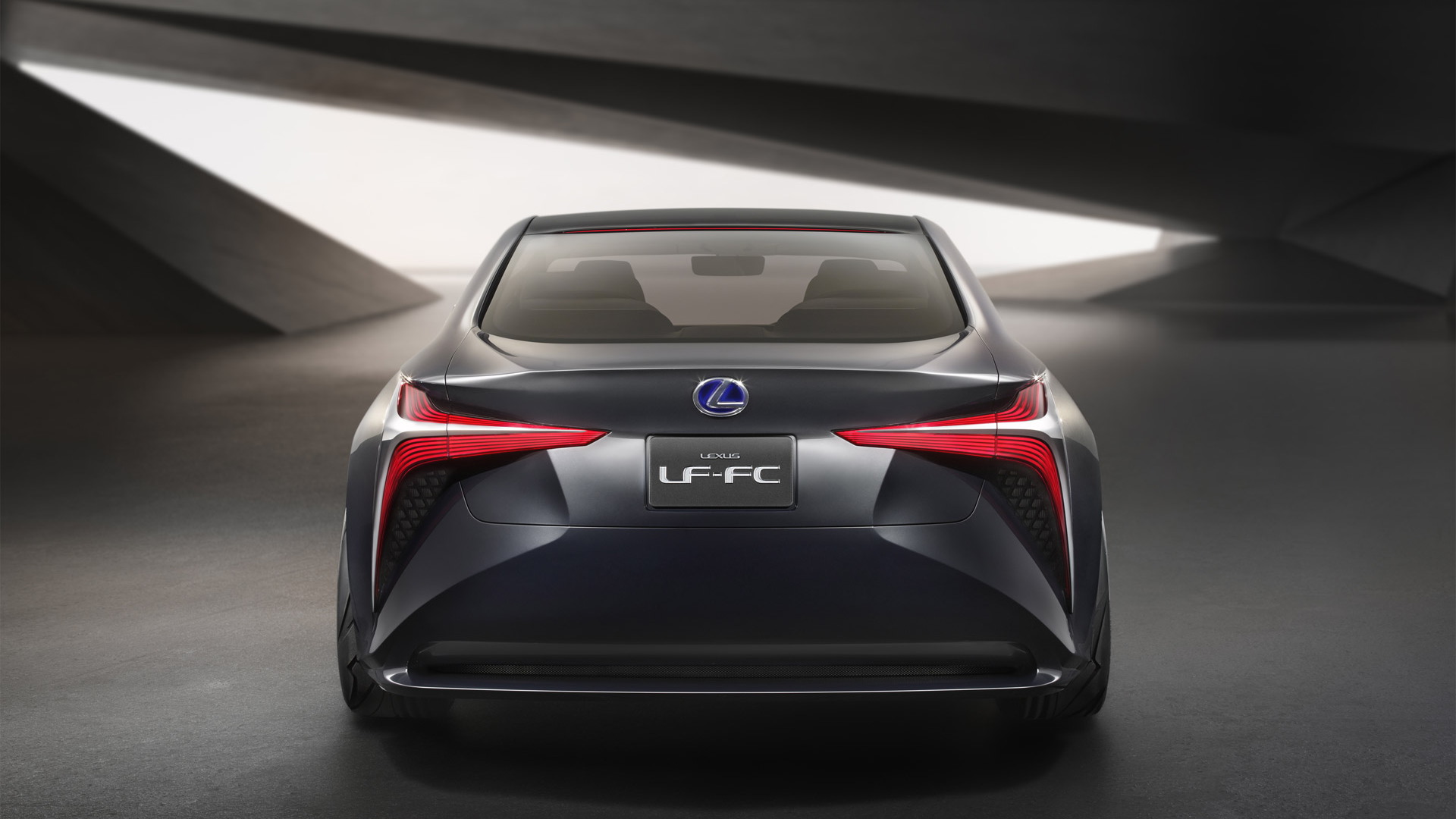After multiple reports that Toyota was considering this for its luxury brand, Lexus unveiled a fuel-cell concept car at the 2015 Tokyo Motor Show.
The Lexus LF-FC is a large fuel-cell sedan that the carmaker says previews its next flagship model.
DON'T MISS: Lexus To Launch Hydrogen Fuel-Cell Powered LS Sedan: Report (Dec 2014)
Power generated by fuel cells is sent to all four wheels, with two-in wheel motors in front.
The fuel-cell stack is mounted in the rear of the vehicle, with a control unit in front and a T-shaped arrangement of hydrogen tanks.
Lexus says this arrangement makes for an optimal weight distribution.
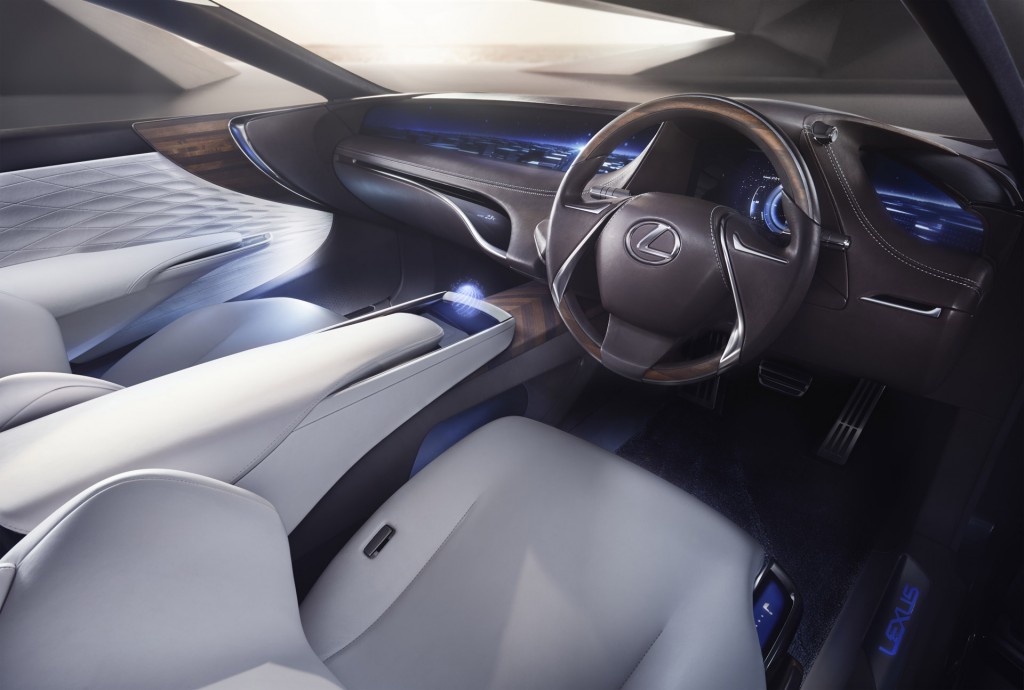
Lexus LF-FC concept, 2015 Tokyo Motor Show
Instead of the more formal profile of the current LS sedan, Lexus attempted to create a "four-door coupe," lowering the roofline and shoving the greenhouse further back.
The 21-inch wheels are made from carbon fiber-reinforced plastic (CFRP).
MORE: By 2050, Toyota Says It Won't Sell Many Combustion-Engine Cars
On the inside, there's plenty of aniline leather on the seats, doors, and dashboard. The driver gets a gesture-based control system, while rear passengers get reclining seats.
The LF-FC also features autonomous-driving technology, including "elevated traffic environment recognition, prediction, judgment, and function," Lexus says.
Some of the styling elements of the LF-LC will likely be incorporated into the next-generation LS, and it's possible the fuel-cell powertrain will be too.

Lexus LF-FC concept, 2015 Tokyo Motor Show
That echoes a report from late last year, which stated that a planned fuel-cell model would be positioned above the LS hybrid as the most expensive variant of the big sedan.
By 2020, Lexus parent Toyota hopes to have sold 30,000 fuel-cell vehicles globally.
Fuel-cell vehicles will also probably play a big role in achieving the carmaker's recently-stated goal of reducing emissions 90 percent from 2010 levels by 2050.
For more 2015 Tokyo Motor Show coverage, head over to our show news hub.
_______________________________________________
